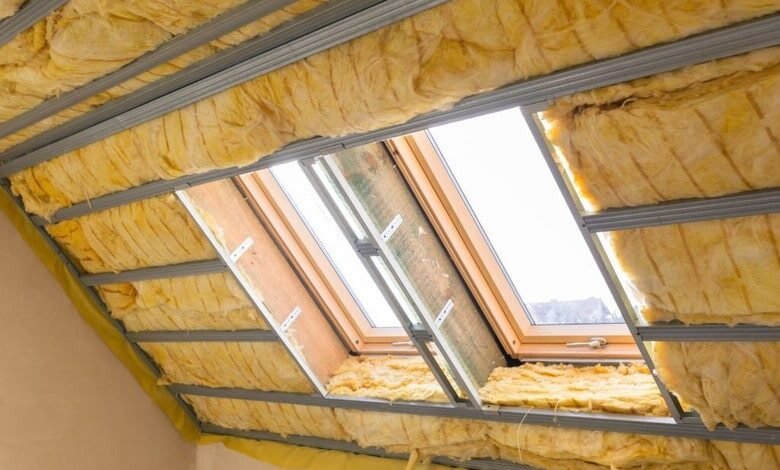Rockwool Insulation: The Ideal Choice for Home Insulation

Rockwool insulation is remarkable. During cooler temperatures, the insulation protects your house from heat loss. When it is hot outdoors, the insulation in your home keeps it comfortable. It conserves electricity and might help you save money.
The insulation is widespread and long-lasting. We will study rockwool insulation and its types. You might be able to learn something useful about this unusual insulation.
What Is Rockwool Insulation?
Rockwool insulation is a type of insulation material made from volcanic stones and slab materials that are purely recycled. It is an effective and efficient form of thermal insulation, providing excellent protection against heat loss in both hot and cold climates. It is commonly used in construction to provide thermal insulation, soundproofing, and fire protection. Rockwool insulation has excellent insulating properties due to its high porosity and low thermal conductivity. It is also resistant to mould and mildew growth, making it an ideal choice for damp or humid environments; therefore, it is recommended to buy from your insulation suppliers.
In addition, rockwool insulation is a cost-effective way to keep your home warm in the winter and cool in the summer. Rockwool insulation has excellent thermal insulation properties, making it a great choice for both residential and commercial applications. It also has great soundproofing qualities, making it ideal for noise reduction in busy areas. Moreover, it has good thermal properties that are comparable to those of fibreglass, which makes it better in terms of installation since it’s very lightweight.
Types of Rockwool Insulation
Rockwool insulation is offered in blanket and board forms. Depending on the required insulating value and surface, you can also choose from a variety of thicknesses and masses. Here are some examples of rockwool insulation available from insulation suppliers.
1. Delta Boards
The most well-known rock wool insulation boards are the Delta boards. They are distinguishable by their triangular shape. You won’t waste time trimming the boards to size because of their design. The boards merely need to be adjusted until they fit precisely between the support planks. In particular, delta boards are used to insulate pitched roofs.
2. Foil-Faced Insulation Batts
Similar to Delta boards, foil-faced insulation sheets are used to insulate floors and roofs. Although one can have trouble installing the batts, they are far less expensive. This could irritate people, especially if the building is being renovated. There are many finishes for foil-faced insulation sheets that might make it easier to apply them to the beams.
3. Standard Insulation Boards
Cavity walls are typically insulated with standard rock wool boards. The boards can conceal brickwork flaws and are simple to install. As a result, you can be certain that the exterior wall’s inside is appropriately insulated. For cavity walls, the outside of the rock wool boards is finished with a more robust material that is wind and moisture-resistant.
Selecting the Right Type of Rockwool Insulation for Your Home
Rockwool insulation is a popular choice for homeowners looking to improve the energy efficiency of their homes. It is made from natural rock, making it an environmentally friendly option. But with so many types of rockwool insulation available, how do you know which one is right for your home? You can get the following insulation from your insulation suppliers, which are listed below:
-
Low-Density Rockwool Insulation
The low-density form of rockwool insulation is used in less severe climates to improve the thermal performance of a home in the winter. It can be used to build open walls or under floors and keep out cold air from between floor joists or wall studs. Low-density insulation retains its properties in humid environments and is often used in the basement of a home.
-
Medium-Density Rockwool Insulation
The medium-density form of rockwool insulation is used in moderate climates to improve the thermal performance and comfort of a home. It can be used to build walls, floors, or fill. Medium-density insulation retains its insulation properties on humid days and has the added benefit of being able to absorb noise from above. It can also be installed with vapour retarder material for soundproofing and a water barrier.
-
High-Density Rockwool Insulation
The high-density rockwool insulation is installed in the cavities of the wall and roof framing to prevent heat loss.
Advantages of Rockwool Insulation in Your Home
Rockwool insulation is a sustainable and energy-efficient material that can help you reduce your energy bills, make your home more comfortable, and protect the environment. It is an ideal choice for insulation in any home due to its superior soundproofing capabilities, fire resistance, and ability to regulate temperatures. Rockwool insulation has many advantages over other types of insulation materials that can be purchased from your insulation suppliers. It is also easy to install and requires minimal maintenance once installed.
Conclusion
Rockwool insulation is the best option for your home insulation if you are looking for the best option for your home insulation. It is made from natural and sustainable materials, providing excellent thermal and acoustic insulation as well as fire resistance. Rockwool insulation is also easy to install and can be used in both new construction and existing homes. With its many advantages, rockwool insulation can help reduce energy bills, increase comfort, and improve the overall quality of life in your home.






